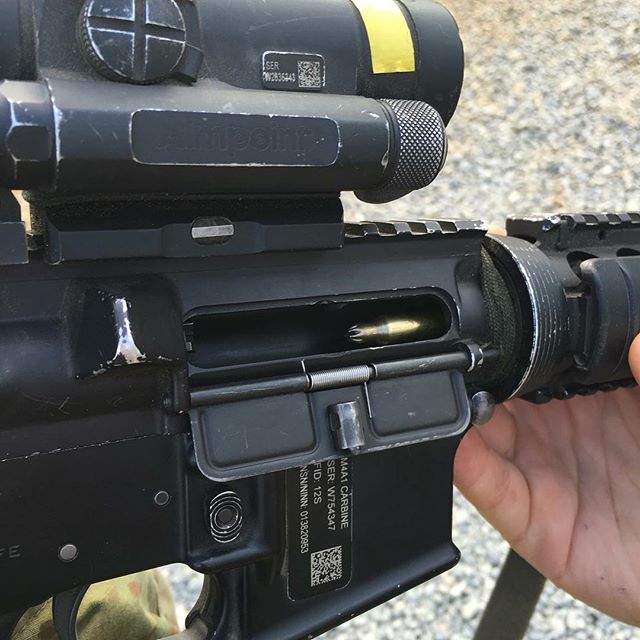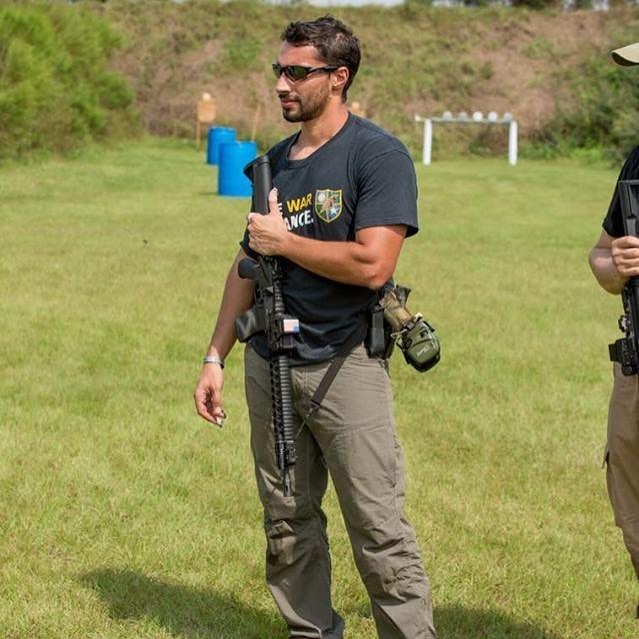AAR is an acronym for “After Action Report or Review.” These are typically completed by both military and law enforcement agencies as well as private organizations to evaluate what happened after any particular event. The intent is to identify the causal factors of the event, failures and successes in response techniques and responders, and other details that can help the organization to sustain their strengths as well as understand and improve their weaknesses. In the context of training, an AAR usually relates an individual’s personal experience in the class in a form that others may gain insights from, such as: “do I want to train with company XYZ based on the experience of this person?”
AAR’s can be very helpful for any company or individual serious about providing quality training experiences. Not only are they good advertising, they can help to refine classes and training techniques to ensure they remain relevant, interesting, and valuable to the students and potential students. They can be a little bit of a two-edged sword as well. A poorly written AAR or a very negative review has the potential to smear a trainer’s reputation, whether deservedly or no. They say any press is good press, even bad press (which might be true), so AAR’s are pretty much a win/win for the instructor or training company.
As an individual, writing an AAR can help you to distill down the training experience and determine if it was useful to you, help to clarify what you learned, consider weak areas that the training helped you to identify, and document it all for future reference. It is also a way of praising good instructors or warning others about charlatans.
Who is responsible for this, the teacher or the student?
Writing an AAR involves more than gushing praise on the instructor. Complimentary statements are good, but they should be in a manner helpful to other potential students. “This instructor is great…” doesn’t help us much. Why is the instructor “great?” What is your frame of reference… great compared to what? What happened to make you think the instructor is “great” etc… You might be more descriptive, something like: “This instructor is a wealth of knowledge, encourages questions, and makes lessons understandable to a variety of learners…” This tells us a little bit more, but it doesn’t help us to discern anything other than the instructor might have known more than you about the subject matter and understands some basic teaching techniques. “I couldn’t understand how to properly grip my handgun, so the instructor spent individual time with me, and patiently explained and demonstrated the proper technique in several ways until I finally got it.” THAT is a useful statement. It ties the assessment of the instructor to a specific skill, it shows that he or she can adapt their lessons to the learning style of the student, and that he or she cares that students don’t get left behind in the instruction process.

So what should you include in your AAR? Here are my suggestions:
1.) Write the AAR in the form of a narrative – tell us a story, make it factual but personal. It doesn’t need to look like it was written for a Joint Chiefs of Staff briefing.
2.) Tell us a little about who is writing it. We all know everyone is entitled to their opinion, but sometimes opinions are dead wrong. We don’t need or want your full resume, but a sentence or two about previous relevant experience helps the reader to discern how qualified you are to make the statements you are making.
3.) Tell the reader how you found out about the course and why you decided to take it. Maybe you took a class because it was for your job or a licensing requirement, but if you took the class for fun or out of curiosity, that’s OK too.
4.) Tell us a little bit about the other students in attendance. Remember not to use names or photos of anyone else unless you have their permission. You don’t want them to get fired because they were training that day but told their boss they were home sick with the flu. You also don’t want someone to get their head sawed off with a dull knife because someone in a hot, sandy part of the world recognized them from a photo on your website, forum post, or Facebook account.
5.) Tell us about the instructors and their instructional methods. Do they seem confident in their knowledge of the material? Can they demonstrate what they are teaching and perform “on demand?” Do they ever breach safety protocols (keep in mind these can vary depending on the type and level of class)? Do they get impatient with students, have angry outbursts, single people out or make insults? Be wary of instructors that speak badly of other instructors by name. It isn’t unusual to hear a good instructor say something along the lines of: “you get what you pay for.” It isn’t cool, however, for someone to say “man, don’t train with Joe Schmoe over at Gun Dudes Training, I’ve never been to one of his classes, but I hear he’s a real jerk and all my friends on the gun forums say…” As a student, you are free to relate your personal experiences in your AAR exactly as you see fit, but NEVER use hear-say, or what someone else said or told you about an instructor. Keep in mind, if you publicize a defamatory statement of and concerning someone that damages the reputation of that someone, it could be considered libel or slander, depending on whether the form of the publication was oral or written, and you could get sued.
Sam, one of the Spotter Up writers is a good shot, and good instructor yet he continually goes to training courses in order to learn.
6.) Tell us a little about the subjects taught in the class. We don’t need a comprehensive list, but pick a few items that really hit home with you and tell us about them. This is the main course of your AAR… make it meaty. Be sure to give us some insight into what you were thinking or feeling, whether you think you made any mistakes, and what you learned from them.
7.) Give us a closing statement, something that sums up the training experience and tells us if you would recommend this training to others… or not. Tell us why.
8.) Be careful! Our words can come back to bite us. If you had an absolutely horrible training experience, it is better to address that directly with the instructor in private than to crow it out on the interwebz. If it was that bad, after addressing it with the instructor, it is acceptable to state your issues with them, but do so gently. Leave the instructor time to improve.
9.) Be careful! Anything you say can and will be used against you in a court of law. If you ever find yourself in court after some defensive act, your AAR will probably surface. You don’t want any statements you made in it to come back to haunt you in front of a jury or in the court of public opinion when your AAR gets published by the newspapers.
10.) Before you publish your AAR, read it out loud, share it with a friend, send it to the instructor you are writing about. That will help you with both proof-reading as well as technical errors that can keep you from looking like an idiot. Once you have the green light, make sure to share it on any relevant forums or social media sites you frequent. Don’t be surprised if your AAR winds up on the webpage of the facility or instructor you wrote it about. If you wrote a good one, I can almost guarantee it will.
Another Spotter Up writer, Jon, continually takes courses. Instructor’s should be up for student critique.
*The views and opinions expressed on this website are solely those of the original authors and contributors. These views and opinions do not necessarily represent those of Spotter Up Magazine, the administrative staff, and/or any/all contributors to this site. Thanks to Michael Lake. This is his first guest article published for Spotter Up.




[…] Writing a Worthwhile AAR […]
[…] Writing a Worthwhile AAR […]